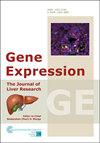果糖,癌症的另一种甜食:情境作用的营养假说
Q2 Biochemistry, Genetics and Molecular Biology
引用次数: 1
摘要
快速增殖的癌症细胞表现出高能量需求。然而,它们对糖酵解途径的利用效率低下,导致癌症细胞消耗葡萄糖比正常细胞多10至20倍的补偿效应。在由于缺氧微环境灌注不良而限制葡萄糖可用性的情况下,癌症细胞求助于替代能源,包括果糖。某些肿瘤已被发现严重依赖果糖,果糖的利用有助于肿瘤前信号传导和增加癌症风险。在过去的70年里,饮食中果糖的摄入量稳步增加,导致肥胖和代谢综合征的增加,这两种疾病都会增加癌症的风险。在这篇论文中,我们提出了令人信服的证据,强调果糖和葡萄糖转运蛋白GLUT5在促进特定类型肿瘤中的作用。我们总结了果糖促进癌症代谢的现有证据和途径,特别是在葡萄糖供应受到限制的情况下。此外,我们提出了一个假说,阐明了饮食果糖摄入和细胞能量状态对脂肪生成表型的调节。值得注意的是,果糖的作用取决于环境,其促肿瘤作用因细胞的能量状态而异。我们全面分析了为什么靶向果糖摄取和果糖分解对于某些肿瘤的治疗和癌症的预防至关重要本文章由计算机程序翻译,如有差异,请以英文原文为准。
Fructose, Another Sweet for Cancer: A Context Acting Nutrient Hypothesis
Rapidly proliferating cancer cells exhibit a high energy demand. However, their utilization of the glycolytic pathway is inefficient, leading to a compensatory effect wherein cancer cells consume ten to twenty times more glucose than normal cells. In cases where glucose availability is limited due to a poorly perfused hypoxic microenvironment, cancer cells resort to alternative energy sources, including fructose. Certain tumors have been found to rely heavily on fructose, and fructose utilization contributes to pro-tumoral signaling and increased cancer risk. Over the past 70 years, dietary fructose intake has steadily increased, resulting in a rise in obesity and metabolic syndrome, both of which elevate cancer risk. In this paper, we present compelling evidence that highlights the role of fructose and the glucose transporter GLUT5 in promoting specific types of tumors. We summarize the existing evidence and pathways through which fructose contributes to cancer metabolism, particularly in cases where glucose availability is restricted. Furthermore, we propose a hypothesis that elucidates the regulation of the lipogenic phenotype by dietary fructose intake and cellular energy status. It is important to note that the effects of fructose are context-dependent, with its tumor-promoting effects varying based on the energy status of the cell. We comprehensively analyze why targeting fructose uptake and fructolysis should be important for the management of some tumors and cancer prevention
求助全文
通过发布文献求助,成功后即可免费获取论文全文。
去求助
来源期刊

Gene expression
生物-生物工程与应用微生物
CiteScore
3.80
自引率
0.00%
发文量
3
审稿时长
>12 weeks
期刊介绍:
Gene Expression, The Journal of Liver Research will publish articles in all aspects of hepatology. Hepatology, as a research discipline, has seen unprecedented growth especially in the cellular and molecular mechanisms of hepatic health and disease, which continues to have a major impact on understanding liver development, stem cells, carcinogenesis, tissue engineering, injury, repair, regeneration, immunology, metabolism, fibrosis, and transplantation. Continued research and improved understanding in these areas will have a meaningful impact on liver disease prevention, diagnosis, and treatment. The existing journal Gene Expression has expanded its focus to become Gene Expression, The Journal of Liver Research to meet this growing demand. In its revised and expanded scope, the journal will publish high-impact original articles, reviews, short but complete articles, and special articles (editorials, commentaries, opinions) on all aspects of hepatology, making it a unique and invaluable resource for readers interested in this field. The expanded team, led by an Editor-in-Chief who is uniquely qualified and a renowned expert, along with a dynamic and functional editorial board, is determined to make this a premier journal in the field of hepatology.
 求助内容:
求助内容: 应助结果提醒方式:
应助结果提醒方式:


